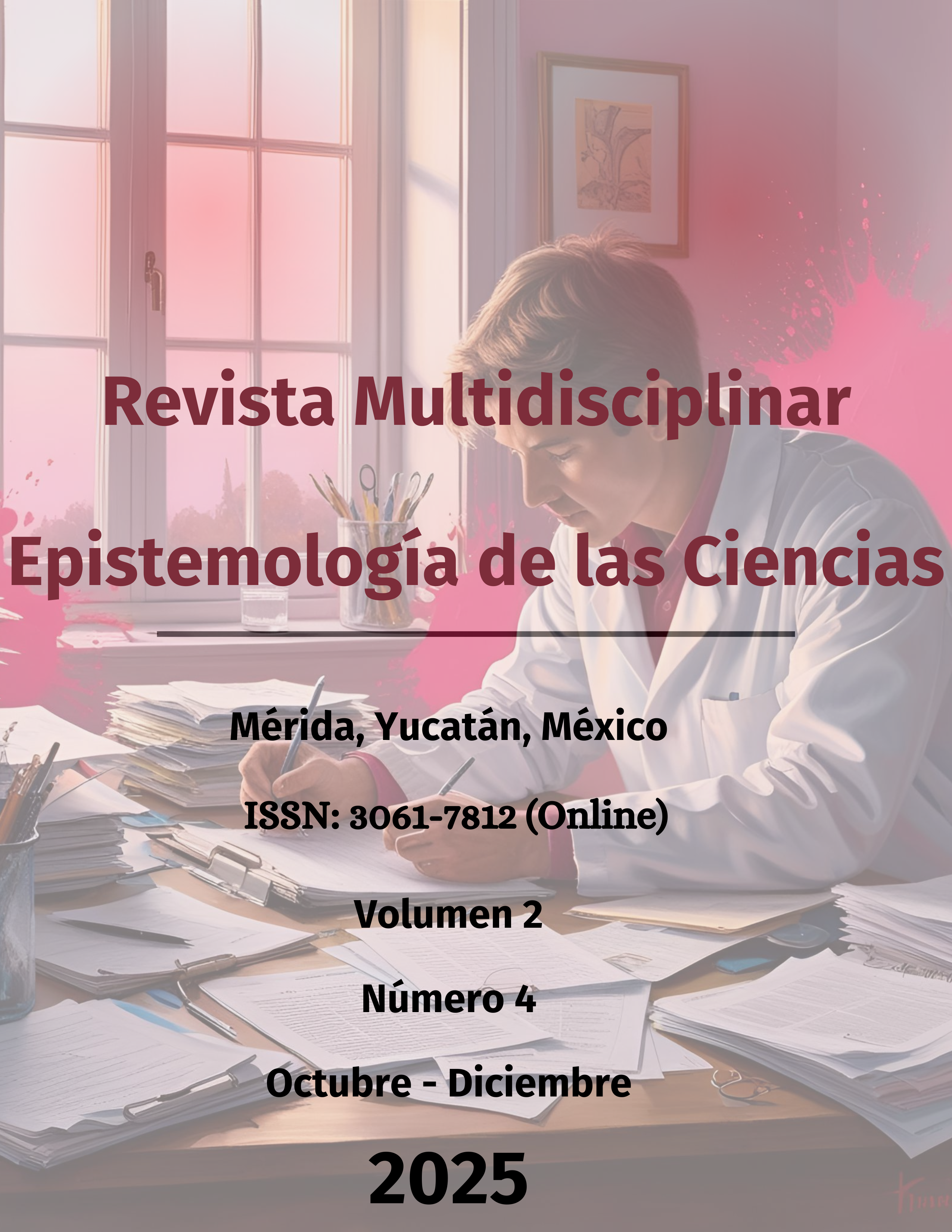Entrepreneurial thinking and strategic leadership in digital education in Ecuador: validation of the ecuadorian digital entrepreneurial leadership model (LEDE).
DOI:
https://doi.org/10.71112/qhncvm57Keywords:
strategic leadership, entrepreneurial thinking, digital education, educational innovation, EcuadorAbstract
This study validates the Ecuadorian Digital Entrepreneurial Leadership Model (LEDE), proposed as an innovative framework designed to strengthen educational management and pedagogical innovation in digital environments. The research followed an applied mixed-methods design, integrating empirical analysis and a systematic literature review (2020–2025). The sample consisted of 118 teachers and academic leaders from public and private institutions in Ecuador, selected for their experience in virtual education. A 30-item Likert-scale questionnaire was administered and validated through expert judgment (Cronbach’s α = 0.91), complemented by semi-structured interviews with academic leaders.
Results revealed a strong and significant correlation between strategic digital leadership and entrepreneurial thinking (r = 0.84; p < 0.01), as well as a determination coefficient of R² = 0.71, indicating that 71% of the variance in digital leadership is explained by entrepreneurial thinking, digital competencies, and empathic communication. Qualitative analysis identified four core categories—ethical leadership, creative autonomy, interinstitutional collaboration, and innovation culture—which represent the operational pillars of the model.
Overall, the findings validate LEDE as a theoretical and practical framework that integrates strategy, innovation, and ethics, contributing to the development of a humanized, inclusive, and sustainable digital education. The model aligns with the United Nations 2030 Agenda for Sustainable Development Goals 4 and 9, and with the Ecuadorian Ministry of Education’s National Strategy for Digital Educational Transformation (2022–2025). The study concludes that the integration of strategic leadership, entrepreneurial thinking, and humanized technological management fosters resilient, innovative, and socially committed educational communities.
Downloads
References
Alvarado, D., & Martínez, P. (2022). Innovación educativa y pensamiento emprendedor docente en entornos digitales latinoamericanos. Revista Iberoamericana de Educación, 88(2), 45–60. https://doi.org/10.35362/rie882-456
American Educational Research Association (AERA). (2020). Standards for educational and psychological testing. American Educational Research Association.
Biesta, G. (2021). World-centred education: A view for the present. Routledge. https://doi.org/10.4324/9781003156241 DOI: https://doi.org/10.4324/9781003098331
Castro, R. (2024). Liderazgo ético y cultura de innovación en instituciones educativas de América Latina. Revista Latinoamericana de Gestión Educativa, 12(1), 55–70. https://doi.org/10.52980/rlge.v12i1.455
Creswell, J. W., & Plano Clark, V. L. (2021). Designing and conducting mixed methods research (4th ed.). SAGE Publications.
Etikan, I., & Bala, K. (2017). Sampling and sampling methods. Biometrics & Biostatistics International Journal, 5(6), 215–217. https://doi.org/10.15406/bbij.2017.05.00149 DOI: https://doi.org/10.15406/bbij.2017.05.00149
Fernández, L., & Castro, R. (2024). Liderazgo educativo y transformación digital en contextos híbridos. Editorial UDUAL.
Fetters, M. D., & Molina-Azorín, J. F. (2020). Utilizing a mixed methods approach for conducting education research. International Journal of Educational Excellence, 6(1), 5–23. https://doi.org/10.18562/IJEE.058 DOI: https://doi.org/10.18562/IJEE.058
Flick, U. (2018). An introduction to qualitative research (6th ed.). SAGE Publications.
Fullan, M. (2023). Leadership in a digital age: Humanizing innovation in schools. Routledge. https://doi.org/10.4324/9781003191549
García, J., & Rojas, C. (2022). Liderazgo pedagógico e innovación colaborativa en América Latina. Revista Panamericana de Educación, 10(3), 115–132. https://doi.org/10.32457/rpe.v10i3.1032
George, D., & Mallery, P. (2019). IBM SPSS Statistics 26 step by step: A simple guide and reference. Routledge. DOI: https://doi.org/10.4324/9780429056765
Harris, A., & Spillane, J. (2023). Distributed leadership and innovation in post-pandemic education. Educational Management Administration & Leadership, 51(3), 455–472. https://doi.org/10.1177/1741143222112335 DOI: https://doi.org/10.1177/17411432231156397
Lynn, M. R. (1986). Determination and quantification of content validity. Nursing Research, 35(6), 382–385. https://doi.org/10.1097/00006199-198611000-00017 DOI: https://doi.org/10.1097/00006199-198611000-00017
Ministerio de Educación del Ecuador. (2022). Estrategia nacional de transformación digital educativa 2022–2025. Quito: MINEDUC.
Neck, H., & Greene, P. (2021). Entrepreneurship education: From theory to practice (2nd ed.). Edward Elgar Publishing. https://doi.org/10.4337/9781789904461
Northouse, P. G. (2022). Leadership: Theory and practice (9th ed.). SAGE Publications.
Organisation for Economic Co-operation and Development (OECD). (2023). Trends shaping education 2023. OECD Publishing. https://doi.org/10.1787/5f58d1fa-en
Senge, P. (2021). The fifth discipline: The art and practice of the learning organization (Revised ed.). Crown Business.
Tavakol, M., & Dennick, R. (2011). Making sense of Cronbach’s alpha. International Journal of Medical Education, 2, 53–55. https://doi.org/10.5116/ijme.4dfb.8dfd DOI: https://doi.org/10.5116/ijme.4dfb.8dfd
UNESCO. (2022). Transforming education through digital learning: Global insights. UNESCO Publishing. https://unesdoc.unesco.org/ark:/48223/pf0000381560
UNESCO. (2023). Reimagining our futures together: A new social contract for education. UNESCO Publishing.
Vega, M., & Ramírez, S. (2024). Innovación educativa y liderazgo emprendedor en la era digital. Revista Latinoamericana de Tecnología Educativa, 22(2), 55–72. https://doi.org/10.17398/1695-288X.22.2.55
World Medical Association. (2013). Declaration of Helsinki: Ethical principles for medical research involving human subjects. JAMA, 310(20), 2191–2194. https://doi.org/10.1001/jama.2013.281053 DOI: https://doi.org/10.1001/jama.2013.281053
Zamora, E., & Cárdenas, T. (2025). Liderazgo estratégico y gestión del cambio en instituciones educativas del Ecuador. Revista Ecuatoriana de Investigación Educativa, 7(1), 101–118. https://doi.org/10.37135/reinedu.071.2025
Downloads
Published
Issue
Section
License
Copyright (c) 2025 Multidisciplinary Journal Epistemology of the Sciences

This work is licensed under a Creative Commons Attribution 4.0 International License.











